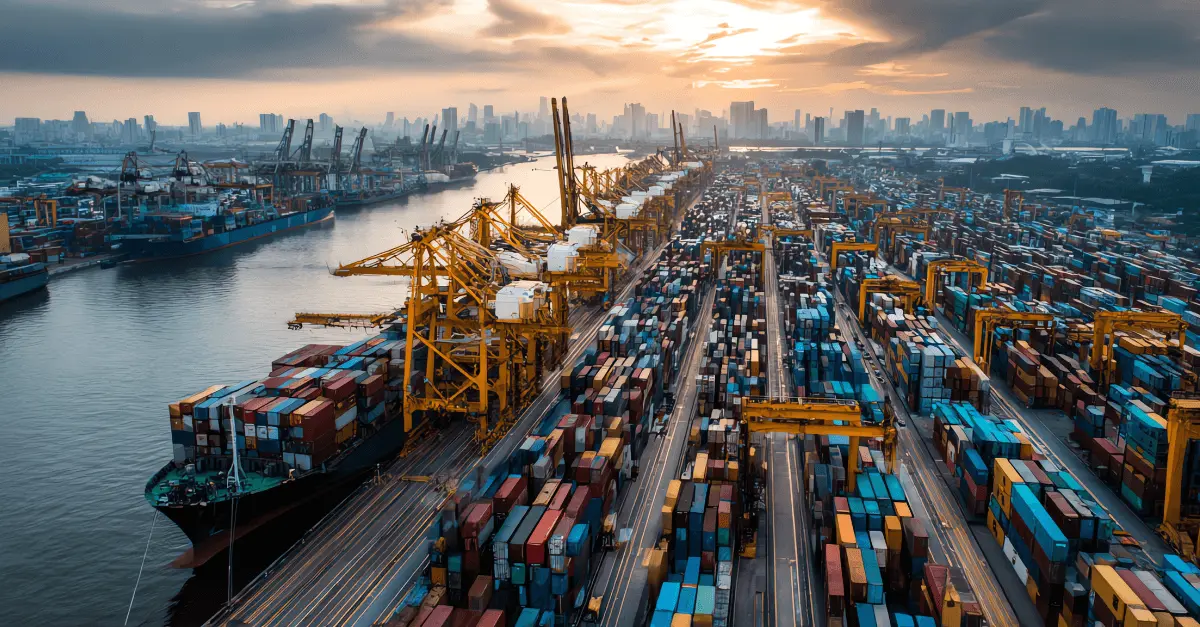The California Transparency in Supply Chains Act
California’s Transparency in Supply Chains Act (CTSCA) is one of the first key pieces of legislation focused on modern slavery and human trafficking in supply chains.

California’s Transparency in Supply Chains Act (CTSCA) is one of the first key pieces of legislation focused on modern slavery and human trafficking in supply chains. This law is aimed mainly at companies and ensuring transparency from companies to their consumers.
When the Act passed in 2010, California set a precedent with state-level legislation on eradicating modern slavery and human trafficking.
Since then, similar laws have been passed globally, including the UFLPA in the U.S., the German Supply Chain Due Diligence Act, the UK Modern Slavery Act, and Norway’s Transparency Act.
The California Transparency in Supply Chains Act differs from the laws above as it focuses on creating supply chain transparency for consumers in regard to modern slavery. The law requires companies to make the necessary disclosures regarding the presence of slave labor in their supply chain, but it does not mandate any implementation measures that ensure that their supply chains are free from human trafficking.
Who Does CTSCA Apply to?
Any retailer, seller, or manufacturer operating or doing business in California with annual gross revenue exceeding $100 million is in the scope of the CTSCA.
- Retail Sellers or Manufacturers
- Doing Business in the State of California
- With Annual Worldwide Gross Receipts in Excess of $100,000,000
What are the Requirements of the CTSCA?
Companies subject to the Transparency in Supply Chains Act (CTSCA) must publicly disclose and publish annual reports detailing their efforts to eradicate human trafficking and modern slavery in their direct supply chains. The disclosure should specify if the verification was conducted by a third party and must include the company’s efforts in the following five areas:
- Verification: Evaluate and address risks of human trafficking and modern slavery within a product’s supply chain.
- Audits: Conduct supplier audits to evaluate compliance based on the company’s standards on human trafficking and modern slavery.
- Certification: certify that the creation of a product complies with human trafficking and modern slavery laws of the US and the country of the direct supplier.
- Internal accountability: Establishing internal standards and procedures for employees and contractors who fail to meet company standards on human trafficking and modern slavery.
- Training: Providing human trafficking and modern slavery training for supply chain management employees.
Modern slavery exists in almost every country. China, India, Pakistan, and North Korea have the largest number of modern slavery victims, followed by the Democratic Republic of Congo, Indonesia, Iran, Nigeria, the Philippines, and Russia. Sixty-four countries have enacted laws to combat forced labor, including the US, Canada, EU states, Australia, New Zealand, and Brazil.
The laws are similar in nature, placing responsibility on companies to create transparent supply chains prohibiting any form of forced labor. Learn how Z2Data can help.
Frequently Asked Questions





The Z2Data Solution
Z2Data is a leading supply chain risk management platform that helps organizations identify supply chain risks, build operational resilience, and preserve product continuity.
Powered by a proprietary database of 1B+ components, 1M+ suppliers, and 200K manufacturing sites worldwide, Z2Data delivers real-time, multi-tier visibility into obsolescence/EOL, ESG & trade compliance, geopolitics, and supplier health. It does this by combining human expertise with AI and machine learning capabilities to provide trusted insights teams can act on to tackle threats at every stage of the product lifecycle.
With Z2Data, organizations gain the knowledge they need to act decisively and navigate supply chain challenges with confidence.


.svg)






